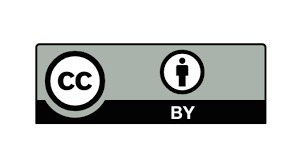Contextualized evaluation as a teaching strategy to improve the development of mathematic competences in state examination
Evaluación contextualizada como estrategia docente para potenciar el desarrollo de competencias matemáticas en Pruebas Saber
Main Article Content
The following investigation set up the contextualized evaluation as a teaching strategy to improve the development of mathematic competences in the state examination. It intends to diagnose the improvement strategies, determine the viability and propose evaluating processes to develop the mathematic competences according to the guidelines of the state examination the investigation was made with the aim that the teacher could encourage and develop in his/her students quantitative reasoning competences, interpretation and representation, formulation and execution and reasoning and argumentation. Through given contexts in the new standardize national system line up. In order to achieve this it was necessary to observe the reality, therefor, the following investigation is placed inside the quantitative paradigm of a feasibility study type, its investigation design is non experimental of a descriptive level and its method is a field method. The preformed analysis has allowed us to observe comparative results of the state examination of 11º in different institutions of primary and high school education. Since also the reality of the evaluating process implemented for teachers, who need constant preparation in evaluating processes. It is necessary a change in the way of evaluate and action processes improvement strategies related. In that sense, the contextualized evaluation is set up as an answer to the will of improve the quality rates and change the way of evaluate, at the same time trying to take evaluation in order to transform it in a formative process which would be much more meaningful and apply improvement strategies with the teacher’s accompaniment.
Downloads
Article Details
Arredondo, S. C., Diago, J.C., & Cañizal, A. (2010). Evaluación educativade aprendizajes y competencias. Pearson Prentice Hall.
Bustinza, C., Durán, D. y Quintasi, J. (2006). Diagnóstico de estilos de aprendizaje de estudiantes del IV Ciclo de la especialidad de educación inicial. Resultados de investigación educativa. Recuperado el 12 de octubre de 2008, de http:// ww.tarea.org.pe/modulos/pdf/ClaudiaBustinza_DiagnosticoEstilos.pdf.
Decreto 1290. Por el cualse reglamenta la evaluación del aprendizaje y promoción de los estudiantes de los niveles de educación básica y media.
Educativa, R. (2008).PlanSectorial 2006-2010. Ministerio de Educación Nacional. Disponible en: http://www.mineducacion.gov.co/1621/articles- 152025_recurso_1_pdf.pdf.
ICFES (2013,Diciembre).Colombiaen PISA 2012. [Datos en Línea]. En ICFES: Informe nacional de resultados Resumen ejecutivo. Bogotá, D.C. Disponible: http://repository.udistrital.edu.co/bitstream/11349/2304/2/BeltranCastroArietaCecilia2015.JP G.pdf. Consulta: 2015, Noviembre03.
Leyva, J. L. L., & Garrido, Y. P. (2006).
Reflexiones sobre la calidad del aprendizaje y de las competencias matemáticas. Revista Iberoamericana de Educación, 41(1), 3.
Ministerio de Educación Nacional (2009).
Núñez, J. C., González-Pienda,J.A., Alvarez, L., González-Castro, P., González- Pumariega, S., Roces, C., ... & Da Silva, E.H. (2005). Las actitudes hacia las matemáticas: perspectiva evolutiva. In Actas do VIII Congreso Galaico-Portugués de Psicopedagoxía (pp.2389-2396).
Nuñez, J et all., 2002”¿Qué pasa con los Colegios públicos?”, Cuartillas de Economía N°1, pp. 2-3.
Sarmiento G. V. (2008).Colombia:qué y cómo mejorar a partir de la prueba PISA. [Documento en Línea] Periódico Altablero No. 44, enero-marzo 2008 del Ministerio de Educación Nacional. Disponible: http://www.mineducacion.gov.co/1621/propert yvalue-37909.html [Consulta:2015, Noviembre 03
Tobón, S. (2008). Laformaciónbasada en competencias en la educación superior: el enfoque complejo. México: Universidad Autónoma deGuadalajara.
Yepes, R. L. G. (2010). Calidad Educativa: Más que resultados en pruebas estandarizadas. Revista Educación y Pedagogía, 16(38).




 Perfil Google Scholar
Perfil Google Scholar



